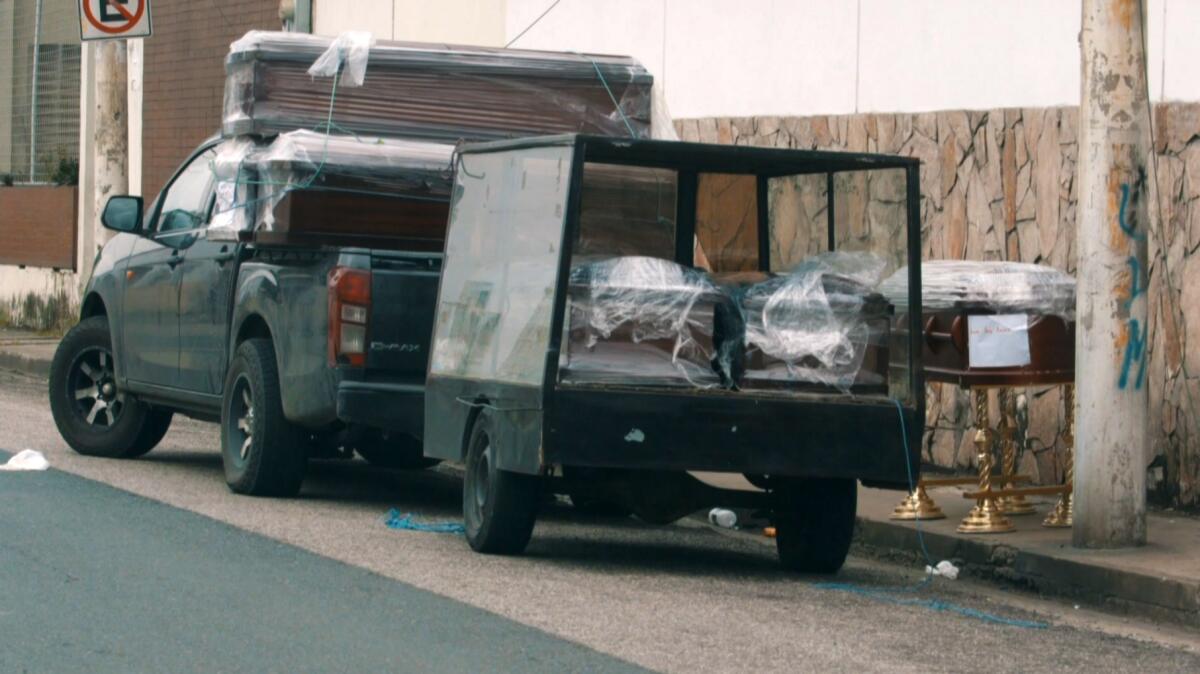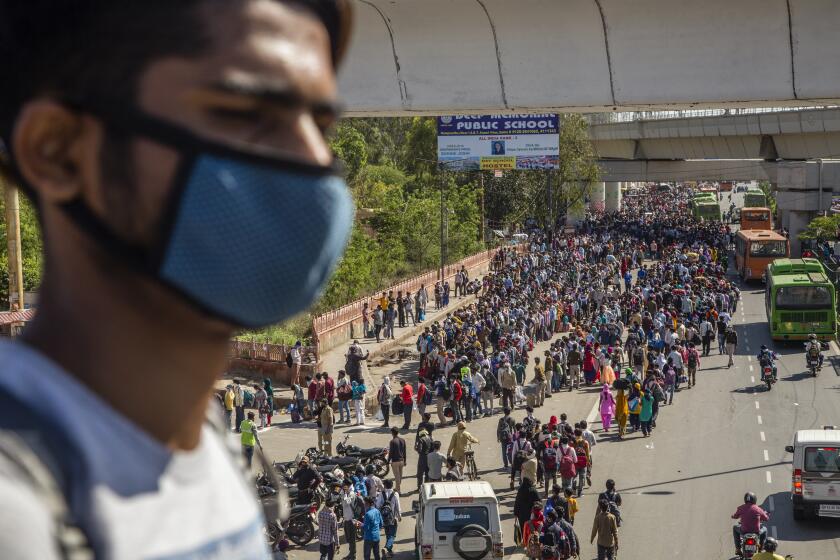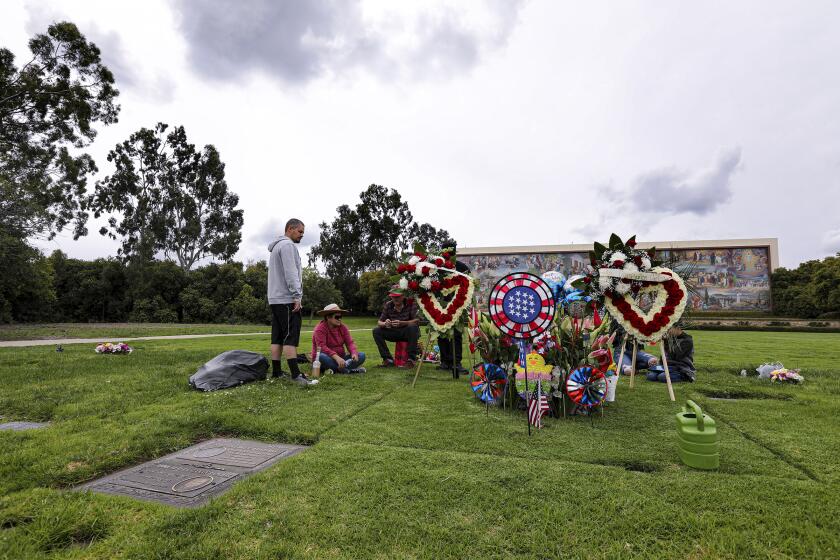As the coronavirus spreads in Ecuador, bodies are being left on streets

QUITO, Ecuador — The corpses have been overwhelming Guayaquil, a port city of 2.8 million at the epicenter of the coronavirus crisis in Ecuador.
Over the last few days, several were wrapped in plastic and left on the streets. Others have lain unclaimed in hospitals and clinics that have been overwhelmed by infections. The city morgue is full.
The majority of the dead are believed to be victims of the virus, but nobody can say for sure how many. There has been little testing.
The country has confirmed 2,700 infections and 93 deaths — 60 of them in Guayaquil and its immediate surroundings. But municipal officials there said they have recovered at least 400 bodies in recent days.
Mayor Cynthia Viteri, who announced that she has tested positive for the virus, said the national government should be responsible for collecting the corpses.
“They’re leaving them in the villages, they fall in front of hospitals,” she said in a Twitter video message to residents last week. “No one wants to recover them.”
The majority of those whose bodies have been found on the street were probably indigent, said Hector Galarza, a publicist in Guayaquil. “But it is generating panic.”
The number of coronavirus infections worldwide has hit 1 million, with more than 50,000 deaths, according to the tally kept by Johns Hopkins University.
On Monday, a former mayor announced the formation of a “crisis committee” of business, government and academic leaders whose goals include “resolving the transport and burial of the huge quantity of cadavers accumulating in the clinics and hospitals attending the pandemic.”
Juan Carlos Freire, an attorney in the city, said public frustration is growing.
“People are asking that some authority takes charge of the dead, but the lack of response means they are being left in central streets of Guayaquil,” he said.
The mayor said Tuesday that unclaimed bodies were now being placed in three refrigerated cargo containers while authorities pursue plans for a new cemetery. The city government is denying news reports that the new cemetery will be a common grave with all victims buried together, saying in a news release that all would receive a “Christian burial.”
As restrictions against the coronavirus grow, funerals are getting delayed because of social distancing measures and families are left waiting to bury their dead.
Between 500 and 1,000 patients per day are showing up with respiratory complaints at Guayaquil’s largest hospital, Los Ceibos, officials there said. Many are false alarms, but the high volume has stressed the medical center to the breaking point.
The national nurses association said up to 370 nurses across the country are believed to have been infected and that five have died.
The country’s first known coronavirus case — confirmed on Feb. 29 — was a 70-year-old woman who had arrived two weeks earlier from Italy and resided outside of Guayaquil.
She died two weeks later, by which time President Lenin Moreno had placed strict restrictions on international and domestic travel. Ecuador’s borders were sealed on March 16.
But residents of Guayaquil, a bustling port city filled with open markets, were slow to take seriously restrictions imposed by the national and local governments.
Two weeks ago, the mayor used city vehicles to block the runways at the Guayaquil’s international airport to prevent the landing of a KLM flight sponsored by European governments to collect citizens stranded in Ecuador by travel restrictions. The fear was that the air crew might infect local citizens.
The airplane finally landed in Quito, the capital, where 170 foreigners boarded for a return flight to Amsterdam.
Viteri said on Twitter that she will continue working as long as she can to “protect Guayaquilenos in a moment as difficult as this one.”
“I will be where I am and how I am,” she wrote. “Don’t leave your houses, protect the elderly and the weakest, and take care of each other.”
Special correspondents Jaramillo Viteri and Kraul reported from Quito, Ecuador, and Bogota, Colombia, respectively.
More to Read
Sign up for Essential California
The most important California stories and recommendations in your inbox every morning.
You may occasionally receive promotional content from the Los Angeles Times.











